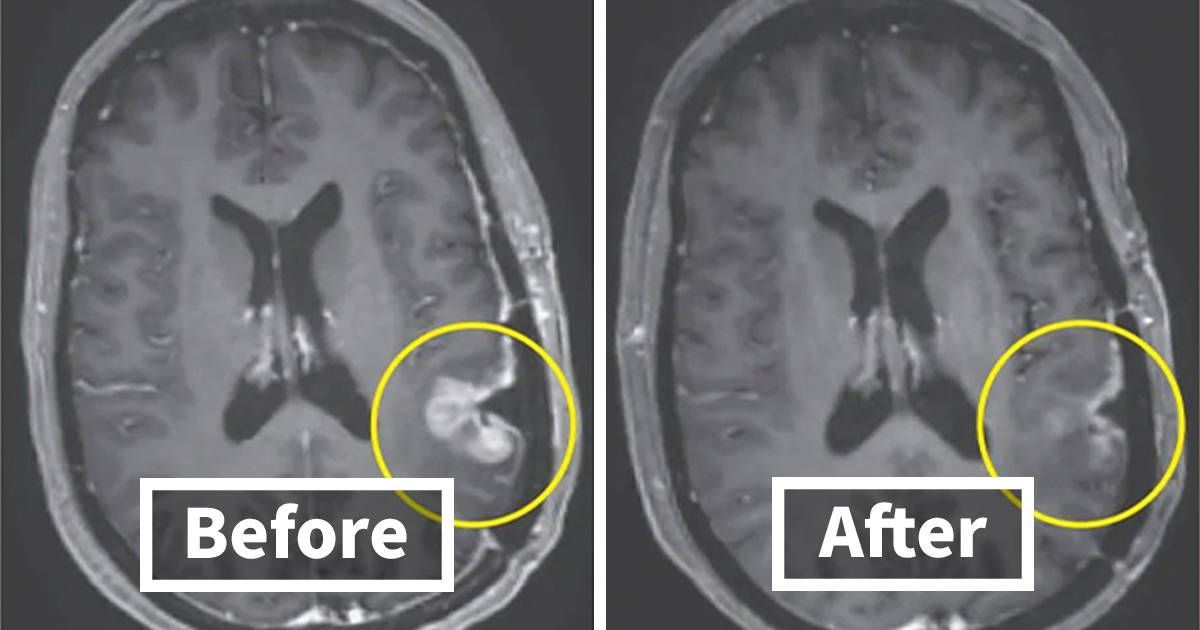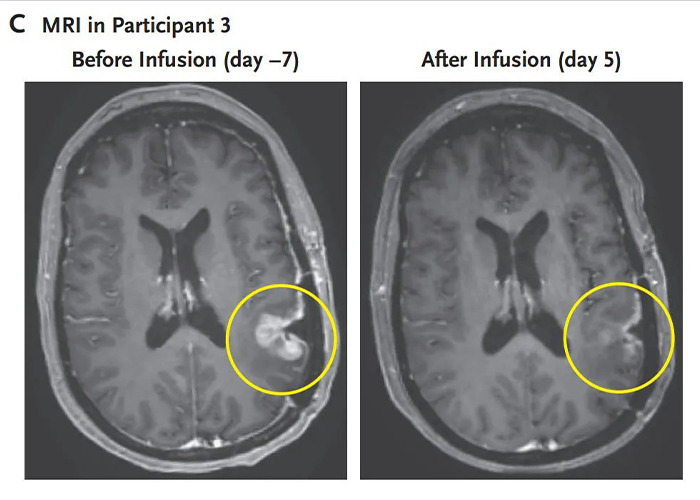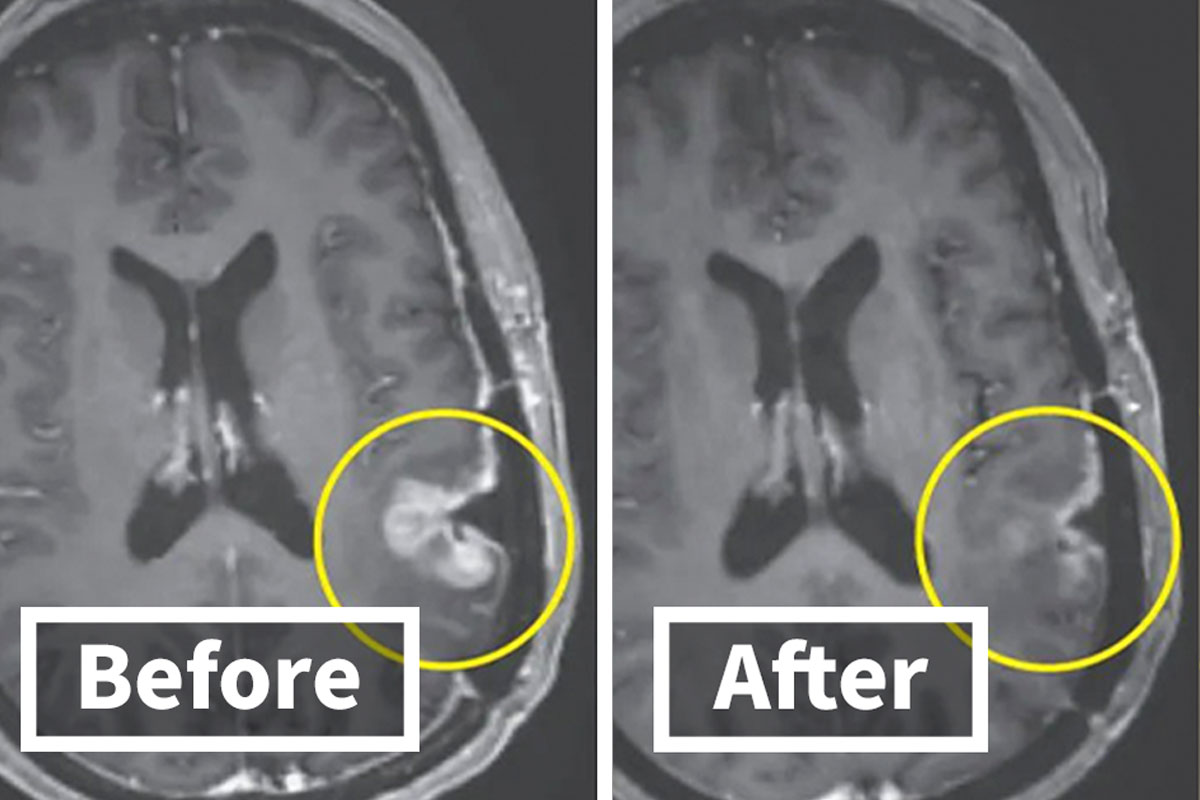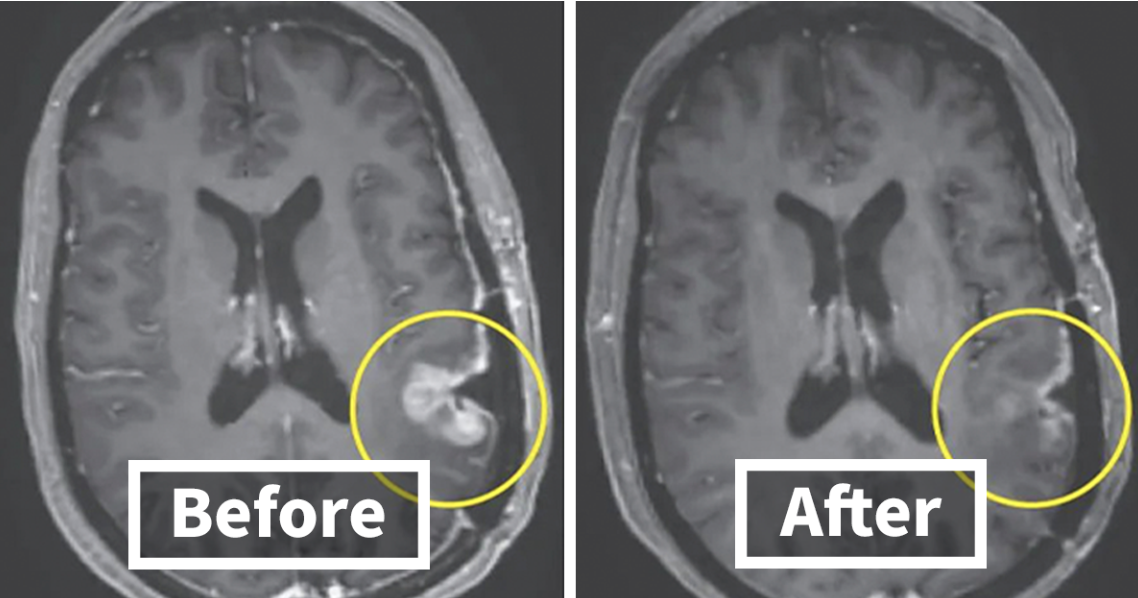
In a groundbreaking study, a new treatment has shown immense promise in fighting the highly aggressive glioblastoma brain tumor. This type of cancer, diagnosed at stage 4, typically has a grim five-year survival rate of just 10%. Glioblastoma grows rapidly and invades healthy tissue, making it exceptionally difficult to treat.
The strategy used in the study involved a novel approach to an existing treatment for blood cancer. This approach, known as CAR-T therapy, harnesses the patient’s own immune cells (T-cells) and transforms them into “living drugs.” After modifying the T-cells, they are reintroduced into the patient’s bloodstream, where they can recognize and attack the cancer cells.
The study, conducted with three glioblastoma patients, yielded remarkable results. One 57-year-old woman experienced near-complete regression of her tumor after just five days of treatment. The other two patients also saw significant reductions in their tumors. These findings were met with astonishment by the medical community, as such rapid advancements are rare.
CAR-T therapy has already proven highly effective for certain blood-related cancers, like leukemia. However, its use for solid tumors like glioblastoma is still being explored. Glioblastoma presents unique challenges due to the high number of abnormal cells, which make them less susceptible to immune cell attack.
Despite the incredible progress seen in the study, it’s important to note that these results are temporary, and further research is necessary. The goal is to develop a long-lasting solution that can provide better outcomes for patients.
Dr. Marcela Maus, director of the Cellular Immunotherapy Program at the Massachusetts General Cancer Center, expressed her amazement at the findings. Dr. Maus led one of the studies and remarked, “None of us could really believe it.”
While it is still early in the research process, both Dr. Maus and Dr. Stephen Bagley, who led a similar study, remain optimistic. They agree that this breakthrough could lay the groundwork for even more significant advancements in the treatment of glioblastoma.
Glioblastoma has claimed the lives of notable individuals, such as Beau Biden, the son of President Joe Biden, and Senator John McCain. The symptoms of glioblastoma include worsening headaches, nausea, blurred vision, and seizures. It is the most common malignant brain tumor, causing approximately 15,000 deaths in the United States each year.
The new findings have sparked hope among many, as they offer a glimmer of optimism for those affected by glioblastoma. With further research and continued development, this breakthrough could potentially transform the lives of patients and their loved ones.







